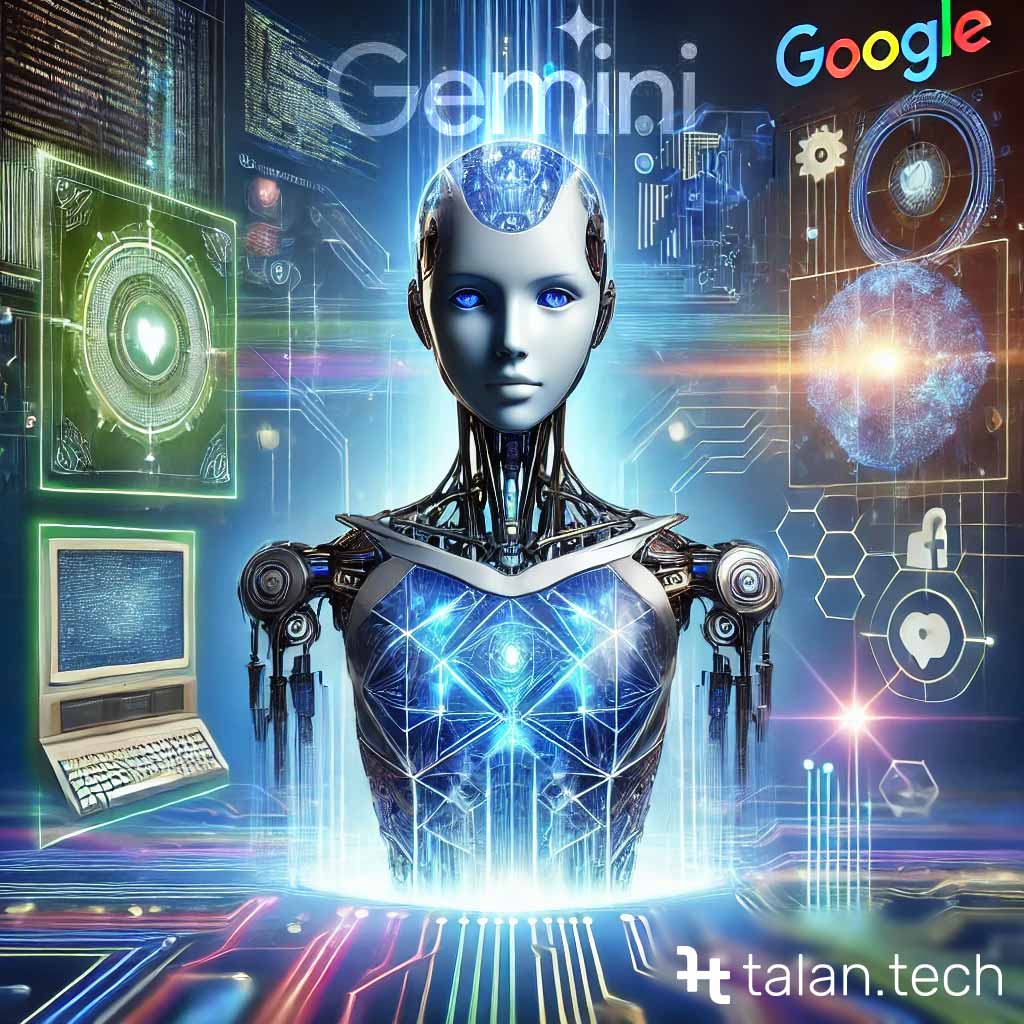Introduction
The landscape of AI chatbot development is continually evolving, and one of the latest advancements in this field is Google’s Gemini AI. This new technology promises to revolutionize the way chatbots are developed and deployed, offering enhanced capabilities and more seamless interactions. In this article, we explore what Google Gemini AI is, its key features, and its potential impact on the development of AI chatbots.
What is Google Gemini AI?
Google Gemini AI is a cutting-edge artificial intelligence system developed by Google. Designed to push the boundaries of what AI can achieve, it leverages advanced machine learning techniques and vast datasets to deliver superior performance in natural language processing (NLP) and understanding. This makes it a good foundation for developing next-generation AI chatbots.
Key Features of Google Gemini AI
Google Gemini AI boasts several features that make it stand out in the realm of AI development. These include:
- Advanced Natural Language Understanding (NLU): Gemini AI excels in understanding and processing human language, allowing it to engage in more meaningful and contextually relevant conversations.
- Enhanced Learning Capabilities: Utilizing state-of-the-art machine learning algorithms, Gemini AI can continually learn and improve from interactions, leading to more accurate and reliable responses over time.
- Scalability: Designed with scalability in mind, it can handle large volumes of interactions simultaneously, making it suitable for enterprise-level applications.
- Integration with Google Ecosystem: Gemini AI seamlessly integrates with other Google services and products, providing a cohesive and comprehensive solution for developers.
How Google Gemini AI Enhances Chatbot Technology
Google Gemini AI incorporates several technical advancements that contribute to its powerful performance and versatility:
Transformer Architecture
Google Gemini AI is built on a transformer-based architecture, similar to other advanced language models. This architecture allows for efficient processing of large datasets and complex language structures, enabling the model to understand context and generate coherent responses.
The self-attention mechanism in transformers allows the model to weigh the importance of different words in a sentence, improving its ability to understand context and nuances in language.
Pre-training and Fine-tuning
Like other advanced AI models, Google AI undergoes a two-phase training process:
- Pre-training: The model is pre-trained on a vast corpus of text from diverse sources. During this phase, the model learns general language patterns and structures, enabling it to generate human-like text.
- Fine-tuning: After pre-training, the model is fine-tuned on specific datasets related to its intended applications. This phase tailors the model’s capabilities to perform well in particular tasks, such as customer service or content generation.
Few-shot and Zero-shot Learning
Google Gemini AI supports few-shot and zero-shot learning, allowing it to perform tasks with minimal examples or instructions:
- Few-shot Learning: The model can learn to perform new tasks with only a few examples, making it adaptable to various applications with limited training data.
- Zero-shot Learning: In some cases, the model can understand and perform tasks without any specific examples, relying on its extensive pre-trained knowledge.
Real-time Interaction Optimization
Google Gemini AI is optimized for real-time interactions, making it suitable for live chatbot applications:
- Low Latency: The model’s architecture and processing techniques are designed to minimize response times, ensuring quick and seamless interactions.
- Resource Efficiency: Efficient use of computational resources allows Gemini AI to handle high volumes of interactions without compromising performance.
Impact on Gemini AI Chatbot Development
The introduction of Google Gemini AI is poised to have a significant impact on the development and deployment of AI chatbots. Here’s how:
Improved Conversational Quality
One of the most notable benefits of Google Gemini AI is its ability to enhance the quality of conversations. With its advanced NLU capabilities, chatbots powered by Gemini AI can understand and respond to user queries with greater accuracy and contextual relevance. This leads to more natural and satisfying interactions, improving user experience.
Faster Development Cycles
Google Gemini AI’s robust framework and integration capabilities allow developers to build and deploy chatbots more quickly. By leveraging pre-trained models and Google’s extensive ecosystem, developers can streamline the development process, reducing time to market for new chatbot applications.
Enhanced Personalization
Personalization is a critical factor in the success of AI chatbots. Gemini AI’s learning capabilities enable chatbots to adapt to individual user preferences and behaviors over time. This results in more personalized interactions, increasing user engagement and satisfaction.
Scalability and Reliability
For businesses looking to deploy chatbots at scale, Google AI offers a reliable solution. Its scalable architecture ensures that chatbots can handle high volumes of interactions without compromising performance. This is particularly important for customer service applications, where timely and accurate responses are crucial.
Current Gemini Usage and Popularity
As of today, this AI is gaining traction among developers and businesses looking to leverage advanced AI capabilities for chatbot development. Its integration with Google’s existing tools and services makes it an attractive option for those already within the Google ecosystem. The technology is being used across various industries, from customer service to healthcare, demonstrating its versatility and effectiveness.
Comparison with Other Chatbot Technologies
Google Gemini AI stands out in the crowded field of chatbot technologies, but it faces competition from other advanced systems like OpenAI’s ChatGPT. While both technologies offer robust natural language processing capabilities and advanced learning algorithms, there are differences in their approaches and integrations.
- Google Gemini AI: Offers seamless integration with the Google ecosystem, making it an excellent choice for businesses already leveraging Google services. Its real-time interaction optimization is particularly suited for live customer service applications.
- ChatGPT: Known for its widespread use and versatility, ChatGPT is highly effective in various applications, from customer support to content creation. It benefits from a large developer community and extensive documentation.
While both technologies have their strengths, the choice between them will depend on specific business needs, existing infrastructure, and desired features. As these technologies continue to evolve, ongoing comparison and evaluation will be necessary to determine the best fit for particular applications.
Conclusion
Google Gemini AI represents a significant advancement in the field of AI chatbot development. Its advanced natural language understanding, learning capabilities, and scalability make it a powerful tool for creating more intelligent and effective chatbots. As the technology continues to evolve, we can expect to see even more innovative applications and improvements in the way chatbots interact with users.
However, the comparison between Google Gemini AI and other leading technologies like ChatGPT remains an ongoing discussion. As both systems develop and their respective strengths become clearer, developers and businesses will need to evaluate which technology best meets their needs. The future of AI chatbot development is exciting and full of potential, and we are still figuring out the best paths forward.





